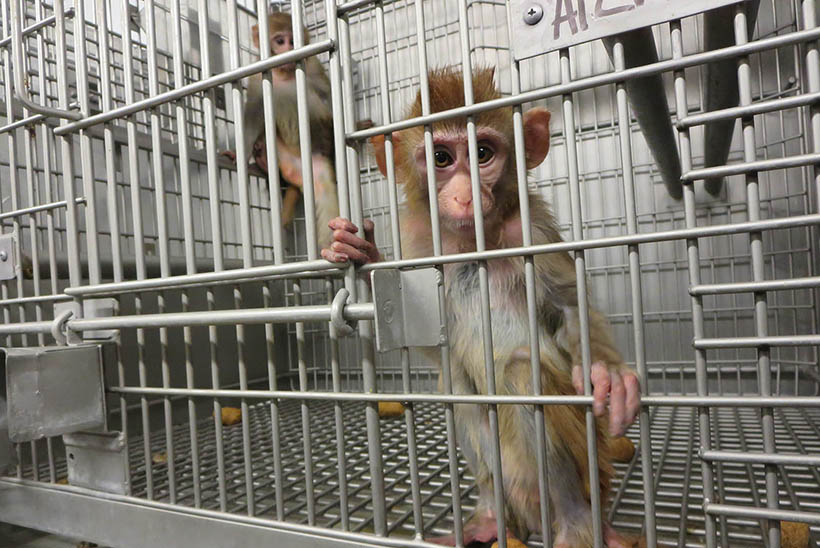There must be no economic incentives for animal experiments. Testbiotech, Institute for Independent Impact Assessment in Biotechnology, has already successfully appealed several times in similar cases at the EPO in the past.
A patent covering genetically engineered ‘Alzheimer apes’ has been significantly restricted after Testbiotech filed an opposition. The ‘Alzheimer’ animals were meant for use in pharmaceutical research. Originally, the patent (EP3066203) granted by the European Patent Office (EPO) in 2020, covered all rodents and non-human primates up to and including great apes, in which genetic engineering is used to induce certain symptoms of Alzheimer’s disease. The opposition division at the EPO has now restricted the patent to use on rats and mice.
The patented processes involve considerable animal suffering. As described in the patent, genetically modified viruses are injected directly into the brains of the animals, thus transferring the disease-causing genes into their genome. As a result, the animals first show behavioural abnormalities and then subsequent changes in their brain cells, similar to those observed in Alzheimer’s disease. According to the patent, this ‘animal model’ is meant for use in developing drugs and therapies.
The patent was granted to research institutions in France. Testbiotech based its opposition on ethical concerns: patents of this kind can create economic incentives to carry out unnecessary animal experiments.
There are already many more than a hundred ‘animal models’ designed to simulate Alzheimer’s disease. What they all have in common: even if the genetically modified animals develop various symptoms of the disease, it has not been possible to use them to develop effective therapies or drugs. The use of such models in pharmaceutical research has, nevertheless, been widely advocated. One reason may be the economic expectations which are often associated with corresponding licensing agreements.
European patent laws stipulate that patents on animals can only be granted if the suffering of the animals is counterbalanced by a substantial medical benefit. In fact, although this new patented ‘animal model’ was developed in 2014, no new drugs or therapies have been developed as envisaged in the patent.
The patent holders, however, point out that they have recently succeeded in developing a diagnostic method for the early detection of Alzheimer’s disease. This was the reason for the EPO not to revoke the claims on rats and mice. However, Testbiotech doubts whether this diagnostic method can be used to assess the medical benefits of the patent, since it was not described therein.
Testbiotech warns that patents on genetically engineered laboratory animals are frequently not about benefits for patients, but are more likely to be focused on economic interests. However, animal suffering should not be a source of profit. Testbiotech has already been successful several times in similar cases in the past.










